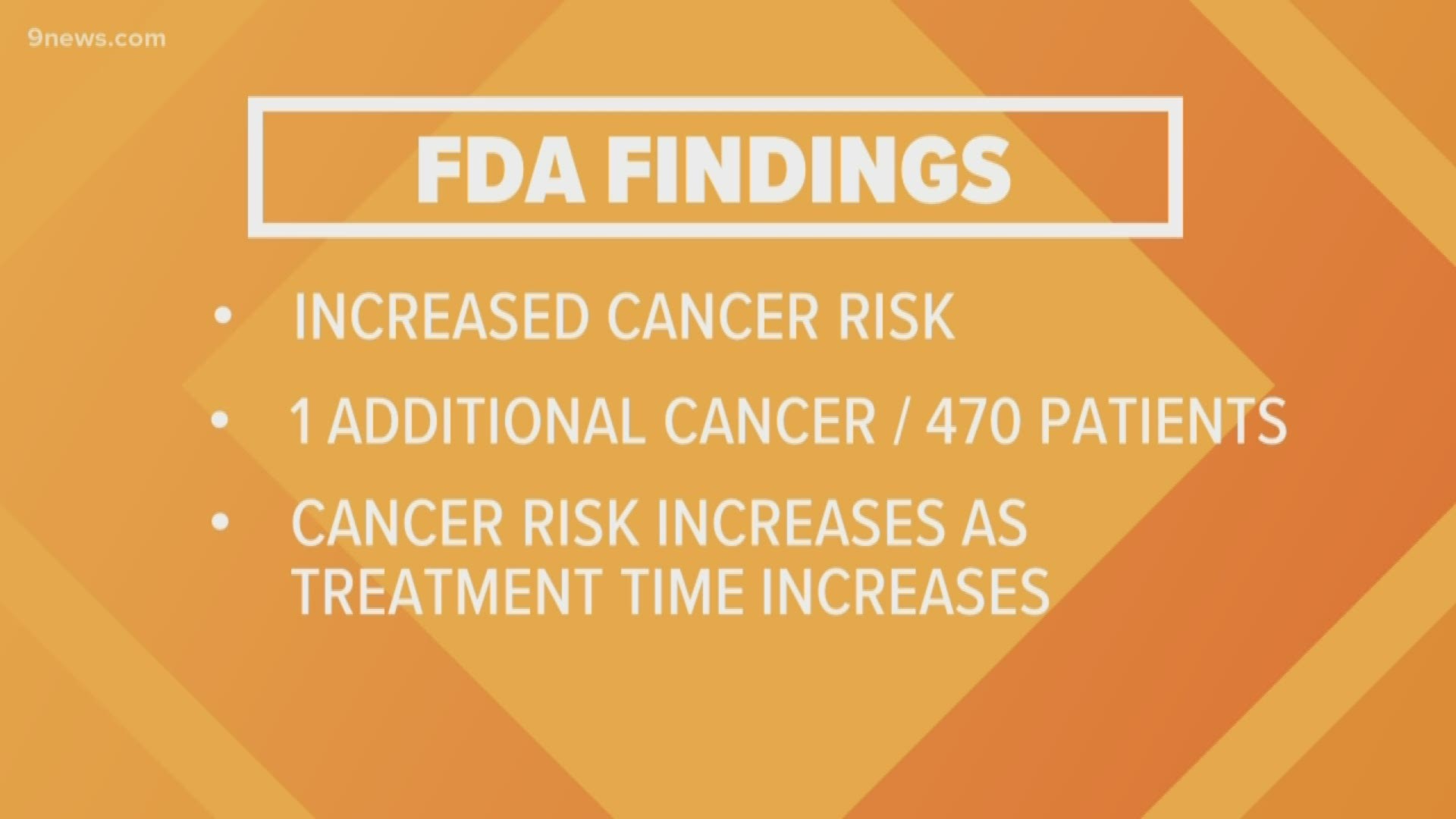DENVER — People who have been taking Belviq should stop taking the drug right away, dispose of any unused drug and talk to your doctor about alternatives.
That's because the Food and Drug Administration (FDA) recently mandated that Belviq be removed from the market immediately due to concerns for increased risk of cancer.
About 40% of Americans are obese, according to the Centers for Disease Control and Prevention (CDC) — many of them turn to supplements and weight loss products to try to lose weight.
Prescription diet and weight loss pills are a popular way to help people lose weight. However, experience has shown us that sometimes these pills can have significant adverse effects.
In 1997, the Food and Drug Administration (FDA) had ordered the diet pill “Phen-Phen” to be removed from the markets due to damage to heart valves. Now, the FDA has mandated the same for Belviq.
9Health Expert Dr. Payal Kohli joined us to talk about the recall and what it could mean for users of the drug.
What do we know about the FDA warning about this diet drug?
The FDA is asking that this drug be withdrawn from the market immediately due to concern about an increased risk of a range of cancers, like pancreatic, lung cancer and colorectal cancer. In studies, one additional cancer was observed among 470 patients taking the pill for one year and the number of cancers increased with longer duration of taking Belviq.
If this drug isn’t safe, how was it FDA approved?
Sometimes, with new drugs, it can take years before the safety signals emerge. So, a drug can appear safe based on preliminary data and then we can find out that adverse events can occur years later. That’s why the FDA mandates post-approval surveillance for many new drugs.
The drug was approved in 2012 and was found to be one of the first diet drugs to help people lose weight and keep it off without any significant risk based on a trial done in 2010.
It works by making you feel full and decreasing appetite. Because of the experience with Phen-Phen, one of the conditions of the FDA approval was to conduct a larger trial to ensure that it was safe for the heart.
That trial completed in 2018 and had 12,000 patients and showed there were no cardiac side effects. But, based on the safety results of that trial, at 5 years, there was a higher rate of cancer reported by the Data Safety Monitoring Board in those who were getting the drug and that’s what led to the withdrawal of the drug.
What should someone who has been taking this drug do?
The most important thing to do is to stop taking the drug right away, dispose of any unused drug and talk to your doctor about alternatives.
At this time, the FDA is not recommending any special screening for those who have been taking the drug but talk to your health care provider about your overall health conditions, especially if you have had cancer before.
SUGGESTED VIDEOS | Local stories from 9NEWS

